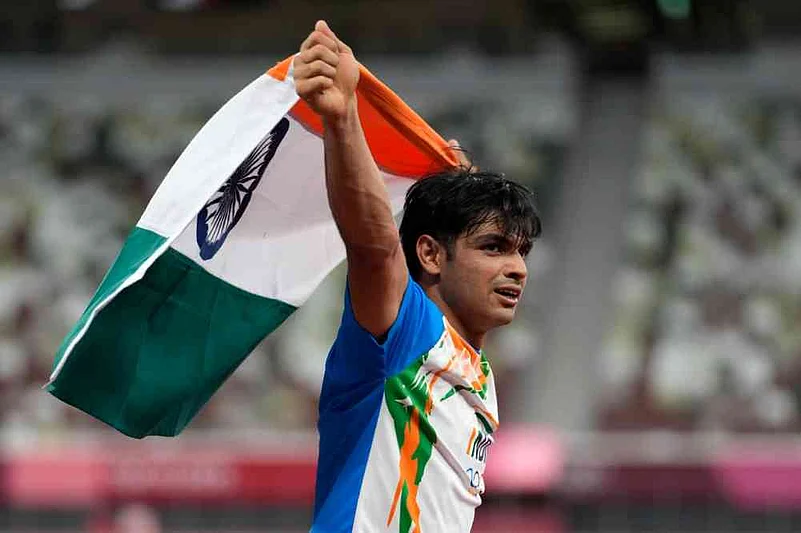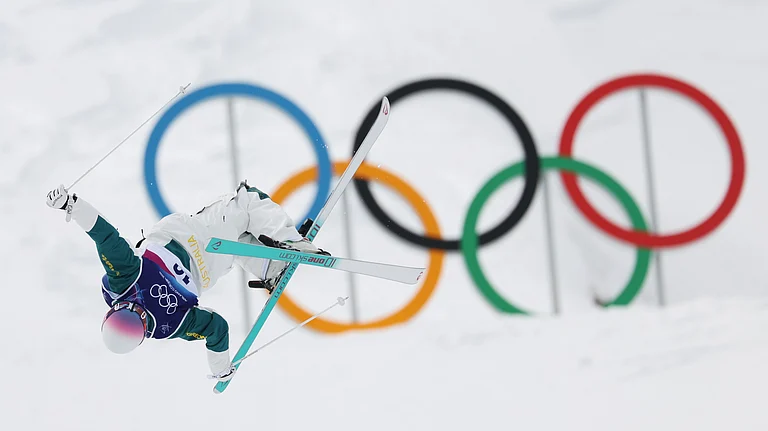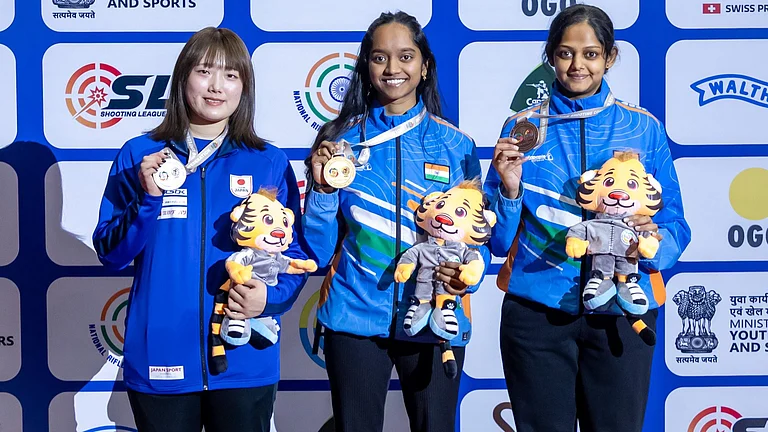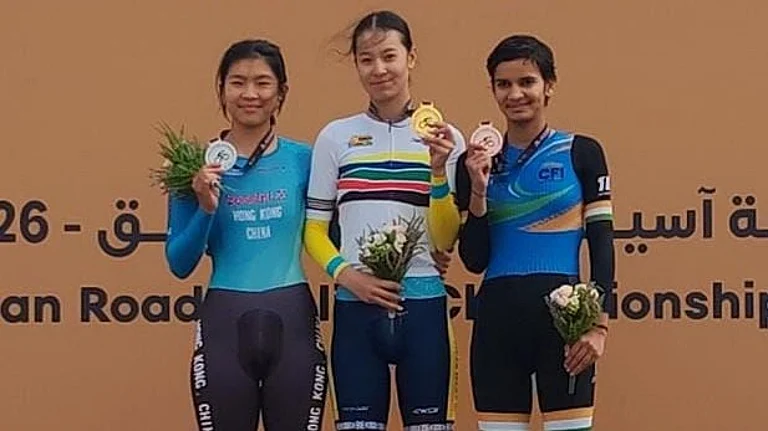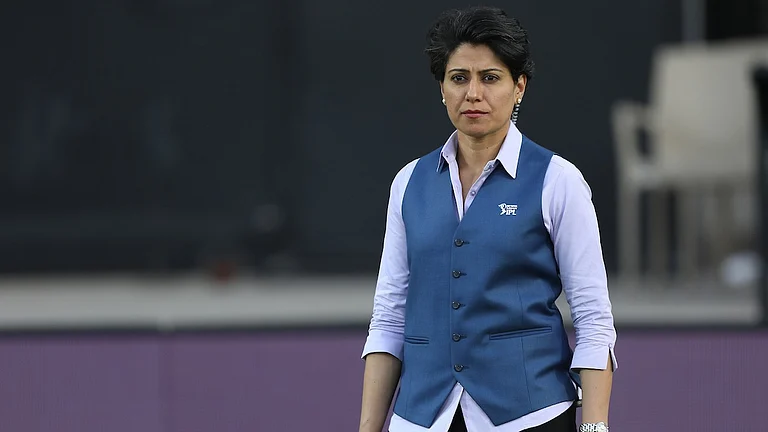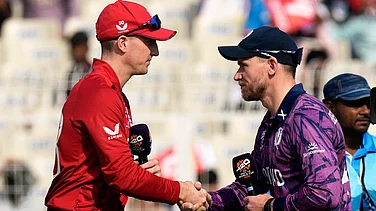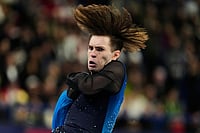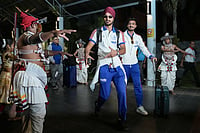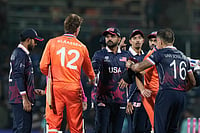Finally! India. Neeraj Chopra. Javelin Throw. Tokyo Olympics. After so many near misses, India finally found its golden athlete as Chopra delivered the elusive Olympic medal in athletics ending a wait of 100 years with a medal in the men's javelin throw final at Tokyo Olympics on Saturday.
Highlights | Gallery | News
Chopra, 23, produced a throw of 87.03m in his first attempt to lead the pack of 12 throwers, which also featured Pakistan's Arshad Nadeem and hot favourite, Johannes Vetter of Germany. Chopra, the Asiad and Commonwealth Games gold medalist, improved it to 87.58m in the second even as Vetter failed to make the cut with two no throws. He could manage only 82.52m in his first attempt.
In the process, Chopra became the second individual Olympic gold medallist for India after shooter Abhinav Bindra, who achieved the feat at Beijing Games in 2008.
Thus, India registered its best-ever medal haul at an Olympics with seven medals, including two silver and four bronze.
With his fifth career-best throw, Chopra has done something which the likes of late Milkha Singh and P T Usha could not do in 1960 and 1984 editions.
The 23-year-old farmer's son from Khandra village near Panipat in Haryana came into the final as a medal contender after topping the qualification round on Wednesday with a stunning first-round throw of 86.59m.
But few would have thought he would bludgeon his way to gold in such a dominant fashion at the grandest of the stage.
Jakub Vadlejch (86.67) and Vitezslav Vesely (85.44), made it 2-3 for the Czech Republic. But pre-competition favourite, Johannes Vetter of Germany did not make the final round of throws. He finished 9th. Another German, Julian Weber (85.30) and Pakistan's Arshad Nadeem (84.62) completed the top five.
Chopra won the country's seventh medal and first gold in this Olympics and joined shooter Abhinav Bindra (2008 Beijing Games) as India's individual gold winners in the showpiece.
With this, the country surpassed the previous best haul of six medal achieved in the 2012 London Games.
Season leader and pre-tournament gold favourite Vetter, who had thrown the javelin to 90m plus distances seven times between April and June, was eliminated after the first three throws as he was placed ninth with a best effort of 82.52m.
Top eight after the first three throws get three more attempts while the remaining four in the 12-man final are eliminated.
No Indian has won a medal in athletics since the country started taking part in the Games in 1920 in Antwerp, Belgium. Three track and field athletes were part of the five-member team -- the other two being wrestlers -- in that Games.
The International Olympic Committee still credits Norman Pritchard's 200m and 200m hurdles silver medals in the 1900 Paris Olympics to India though various researches, including the records of then IAAF (now World Athletics), showed that he had competed for Great Britain.
In any case, Pritchard was not an Indian and the country's first Olympic participation under a national Olympic body was in 1920.
Since then, track and field athletes have been an integral part of Indian contingents in almost all the editions of the Games.
(With PTI inputs)







